Part 1 — Scripture and Tradition
by Matt Ferdelman

Matt Ferdelman and son
Today’s posting is by Matt Ferdelman. Welcome Matt!
Matt was born into the Pentecostal church where he attended for the first 17 years of his life. In 2008 he began the process of becoming a five-point Calvinist at Apex Community Church in Kettering, OH, where he remained until his conversion to Orthodoxy in November 2014.
After marrying his wife Erin in 2011, he finished his Bachelor’s and Master’s of Science in Accountancy at Wright State University in 2012 and 2013, respectively. Matt now works as a CPA in a small accounting firm downtown, and spends his free time entering deeper into Orthodox theology and life, and playing with his two young boys, ages 2 and 3 months.
Having set up the easel of the picture, I will now seek to fill the frame. Out of a desire to preserve friendship then, I will take up my brush to begin the broad foundational strokes, from which the image will flow. In earlier conversations, I gave hints as to the reason for my conversion, but have not as yet developed a full theme. Below and in future posts I intend to outline as a sketch the reasoning of mind and heart that drew me to the Orthodox faith, and the path upon which God has led me. What I say now is not meant to be a treatise proving one position over another, but an explanation of the road that led me to today. I will leave much out for the sake of brevity. There is a time for careful exposition of source documents and exegesis of Scripture. But for now I just want to tell a story.
A. The Way We Read the Word
During the majority of my life as a Protestant Christian, I always approached the Bible with at least a small amount of uncertainty. When I tried to understand a passage, I realized a sense of overconfidence would be dangerous. After all, I was just one man approaching the Scriptures on my own. And what did I know? Very little, in fact. Because I knew this I consulted commentaries and sermons consistently and in great volume. I certainly did my fair share of thinking when I dug into the texts, but I always consulted people smarter, more holy, and more learned than myself. This strategy, I think, had a good balance of self-awareness and reliance on other believers.
Despite this, I was still never completely convinced my views on one thing or another were the right ones. Because, even though I consulted preachers and teachers and prayed and sought God, I was still the ones making the final decisions. Let me explain what I mean by this. When I listened to preachers, I often heard differing viewpoints on important matters, and I didn’t know whom I should believe. For instance, John Piper taught me God chooses whom he would save before he created humanity. But people like Billy Graham taught me God doesn’t choose one over another, but makes salvation possible for everyone. How could I know which of these teachers were right on this issue? Was there some standard by which I could compare their intent? They were both preachers I respected and in which I recognized a pastoral heart. Neither had any major sins that marred their ministry. Neither held to any beliefs I thought were heretical. But in the end I had to choose one or the other. They couldn’t both be right on this issue. They held to opposite views. So I was faced — both in this example and countless others like it — to choose which doctrine to believe based on my own reason and insight, the very thing I had hoped to avoid, knowing my sinful heart was prone to wander.
Now, I realize the Protestant answer to this dilemma is to follow the guidance of the Holy Spirit. After all, the Spirit has been given to the church “to lead you into all truth.” (John 16:13) I believed this then and believe this even more truly now. I consistently prayed that God would give me understanding of the words of Scripture through the inspiration of the Holy Spirit. But even still, I wasn’t certain I could accurately choose which view on election was the right one. Did God choose us and by divine providence and without permission change the hearts of the elect, or did he make salvation possible for every man and then let man choose him? Though the Spirit dwelt within me, I was uncertain who was right.
More than that, both these men possessed the Spirit of God. But despite this, they disagreed on a very central doctrine. This doctrine is more than a scientific inquiry into how things work; it speaks multitudes about who God is and what he is like. It tells us about God’s character and how we should relate to him. This is not some peripheral area of discussion about which we simply do not know. So whom am I to believe? I have the Spirit. Piper has the Spirit. Graham has the Spirit. If the Spirit leads us to truth, why do we disagree on fundamental points of the Christian religion?
Now, this debate wouldn’t be problematic if both sides said they were just expressing their own points of view; it wouldn’t be an issue of contention if they said they might be wrong. But they don’t; and they shouldn’t. Both sides of this debate in the Protestant church — the Arminians and Calvinists – are quite certain their view is the correct one. What’s more, both sides ardently claim their view is clearly expressed in Scripture. So who is right? Surely there are many great men and women of faith on both sides of the issue, all claiming to have the Spirit, and most displaying fruits of the Spirit. What is a man to do?
Ultimately, I had to decide for myself who was right. I had no standard by which to judge the competing claims or the people making them except my own logic. I had no basis by which to measure their doctrine except my own understanding of Scripture. But then I couldn’t be sure I believed the right thing. I was just one person in an ocean of ideas and dogma, tossed to and fro as one argument gained precedence over the other in my mind. Where was I to turn?
You see, in the end, my approach to understanding Scripture lead to relativism. I could only make a final decision based on my own logic. But the same goes for every other Christian on earth. And I certainly could not say the Spirit of God did not dwell in them. So if both I and other Christians had the Spirit, how could I reconcile the fact that we disagreed on central points of the Christian faith? There is only one Spirit, so why would the Spirit be leading individual Christians to different conclusions?
To answer this question, let’s take a step back and look at another controversial doctrine, one which was settled long ago.
B. Identifying Heresy
What if in the dialogue above we were actually discussing arguments for and against a definitively heretical belief? What if, instead of discussing election, we were discussing whether Jesus was actually the Son of God? This very thing has been at the center of heated debate during periods of church history. Today, the vast majority of Protestant Christians I know would declare without blinking that if you do not believe Jesus is the Son of God, you are not a Christian. But how do we know this is true? Was this always a foundational claim of the Christian Truth?
If someone did come to us claiming Jesus was not the Son of God, how would we prove them wrong? In the past, my first response would have been to show them passages in Scripture that prove the deity of Christ. I still fervently believe Scripture bears witness to this. But the problem with this approach is that those who deny the deity of Jesus use the Bible as their proof!
Here, I refer to Arianism, a heresy which came to the forefront of Church debate in the 4th century. Arius was a presbyter in Alexandria, Egypt who taught that Jesus was not co-eternal with the Father, but was a created being. In other words, Jesus was not God. He did not come up with this idea willy-nilly, but developed it from his reading the Scriptures:
“If you loved me, you would have rejoiced, because I am going to the Father, for the Father is greater than I.” (John 14:28)
“The Lord possessed me at the beginning of his work, the first of his acts of old.” (Proverbs 8:22)
“And this is eternal life, that they know you the only true God, and Jesus Christ whom you have sent.” (John 17:3)
“And to the angel of the church in Laodicea write: ‘The words of the Amen, the faithful and true witness, the beginning of God’s creation.” (Revelation 3:14)
“He is the image of the invisible God, the firstborn of all creation.” (Colossians 1:15)
“For although there may be so-called gods in heaven or on earth—as indeed there are many “gods” and many “lords”— yet for us there is one God, the Father, from whom are all things and for whom we exist, and one Lord, Jesus Christ, through whom are all things and through whom we exist.” (1 Corinthians 8:5-6)
Arius taught, based on verses like these, that Jesus was the first of all created beings, a sort of demi-god; but not God himself. Of course, when you or I hear this we think “But this is totally wrong. How could he think this?” We think that way because we approach Scripture with a certain interpretation in mind. We have been taught certain Christological and Trinitarian formulations through which we read the Scriptures. In this case, the lens of our tradition leads us to the right conclusion. But what if we had the wrong teaching? What if we were taught to be Arian from birth until today? Naturally, we would interpret Scripture through the lens of what we had been taught. When confronting someone who had been raised in such a tradition, how could we prove them wrong? Proponents of Sola Scripture would appeal to Scripture, but so would the Arians. In the end, it would just be a Bible quote fest with no potential for ultimate conclusion. Both parties would be fully convinced they were right, but would have no means to defeat the arguments of their opponent. What is missed in this approach is the fact that both sides are arguing for different interpretations of the Bible. Both interpretations are based on respective traditions. Therefore, both sides are, from the beginning of the debate, arguing for the superiority of their tradition. But how do we know whose tradition is the right one?
C. How We Should Combat Heresy
The reason people like me and other Protestants I know believe Arianism to be heresy is because that is what we have been taught from birth. But what if we grew up in a family that held to Arius’ beliefs? How do we know what we have been taught is true or false? The answer is the Church. In the fourth century when Arius was out proselytizing the masses, the Church called a council to deal with his teachings and other matters affecting the Church at that time. That council, the first ecumenical council of Nicea, denounced Arius’ teaching as heresy and demoted him from his position of authority within the church.
[We should note here exactly what heresy is. The definition of heresy is “to choose.” Heresy is the act of choosing what doctrines or what passages of Scripture you want to keep, and which you want to let go. The lesson we should learn from this is that we should always take the Christian faith holistically, without adding or subtracting from it.]
When the council made this decision, they did not just say “Well Scripture says Jesus is God, so you must be wrong.” They did utilize Scripture in defending their position, but their primary argument was that Arius’ belief did not flow from the Tradition handed down by the Apostles to the Christians of that day, nor did the Spirit within the Church conciliar agree with his claim.
You see, in a similar way to how Protestants claim the Spirit gives enlightenment of Scripture to each individual believer, so the Orthodox claim the Spirit maintains right doctrine from the beginning until now. So when this ecumenical council and others like it came to a decision, their decisions were binding authoritative interpretations of Scripture. For they, like Jesus, only spoke what they had already heard. Jesus spoke only what he heard the Father hear. Likewise, the Church is only to speak from the Tradition passed down through the generations, a Tradition established and maintained by the power of God working through the Holy Spirit.
The Spirit is indeed given to each believer to understand the Word. But this does not mean the Paraclete is given so each can try to understand everything by themselves. The Spirit is given to the Church Catholic. Thus, Scripture and all other components of Tradition are meant to be understood within the context of the Church. Outside the safeguarding walls of Tradition maintained by the Church, Scripture can easily be misunderstood. Few, if any, portions of the Bible are extremely simple, and all of it was meant to be interpreted through the Spirit. In the words of David Bentley Hart, the word of Scripture is the harp upon which the Spirit plays. If the Spirit is not present, the text of Scripture does not become the Word of God within the hearer. The Spirit dwells within each individual believer, but that does not mean Scripture is meant to be understood on an individual basis. Christ said that where two or three were gathered in his name, he would be there in their midst. Likewise, deep calls out to deep, and iron sharpens iron. Without the work of the Spirit in the lives of the Church Catholic, we would be unable to come to a true understanding of the Scriptures and of God.
The work of the ecumenical councils is the classic exemplar of the Spirit’s work in this conciliar manner. Accepting the teachings of these councils is extremely good and helpful. It saves us from much error, helps us understand the inner workings of reality, and creates in us a right belief about God’s character. It is because of these councils that Christians today have the doctrines of the hypostatic union and the trinity. But though all Christians agree with this Christology handed down by the first council, not all Christians hold to the other ecumenical decisions. They pick and choose which decisions to hold.
Take for example the decisions of the seventh ecumenical council on the use of icons (pictures) in worship. In the years preceding that council, a breach in unity had begun to form between iconoclasts, those who opposed the use of icons, and iconodules, those who wanted to use icons in worship. The council convened, discussed the issue, and came to the decision that the use of icons was good, helpful, and consistent with the reality of Christ’s incarnation. When God created the world, he called it “good.” And when mankind fell, God did not shrink from taking on a flesh to save us. Jesus is the icon of God, the image of God. Because God was willing to represent himself in such a manner, we should likewise not be afraid to make images in our worship of him. But, despite this decision, many in the Protestant church are afraid to use pictures in worship. I recall reading one chapter in J.I. Packer’s Knowing God which specifically argues against the use of icons in worship.
But how can we say this and still be consistent? If picking and choosing which parts of Scripture to believe is heresy, surely picking and choosing what to believe from the Tradition of teaching handed down from the beginning is equally as dangerous. Picking and choosing from Tradition implies the individual is the final authority in the church, the final arbiter of truth.
“But,” I hear the answer, “the Spirit gives us right understanding. So we do not need tradition.” But this runs into the problem I struggled with of which I spoke earlier. If the Spirit is at work to give each individual a correct interpretation of Scripture and of full revelation of Christ, why do Christians in possession of the Spirit disagree on important doctrines such as election? Also, taking the approach of Sola Scriptura, how are we to know that the teachings of men like Arius are indeed heresy? If the Spirit does work in this way, why is the Protestant church not unified? If the Spirit gives the interpretation, to which Spirit should we listen?
In fact, the Holy Spirit does give understanding to the believer, but not in the manner prescribed in Protestant doctrine of Sola Scriptura. God gives us the Spirit, but the Spirit is meant to be understood in the context of the Church. It is the Church conciliar that makes binding decisions on doctrine.
D. Tradition
One objection to the discussion above is that the Protestant church does not do things solo. The majority of Protestant Christians rely heavily on the help of other believers and seek teachers more wise than themselves. I recognize this is true. I lived it myself. But because teachers in the Protestant church are not unified in doctrine, I could not, as a Protestant, know whether anything I believed was true. See, if I was the ultimate judge of what was true, anything could go. I could even wind up believing with groups like the Mormon church that Jesus is just another created being, and thus agree with the heresy of Arianism. What I needed was an authoritative exposition of Scripture. What I needed was Tradition.
What I believe you will realize is that, in practice, every Christian has a tradition. We all have a tradition through which we approach the holy Scriptures. We all have a teaching we have been given by which we interpret the texts. None of us, if we are honest, truly hold to “Sola” Scriptura. We do not use only Scripture to understand God. Our experiences, the teachings we are given, our logic – all these contribute to our understanding of God and of the Scriptures. I have read many authors who have argued that Sola Scripture, as commonly used today, has taken on an entirely different meaning than originally intended by Martin Luther. Luther, they claim, did not desire to do away with tradition, but to reform tradition, to take out from the true tradition the human additions which had accumulated over the years. Today, however, Sola Scriptura is often understood as the complete rejection of tradition. But tradition is inescapable.
E. Which Tradition?
From these thoughts and studies I realized I could never escape from applying tradition to Scripture and that, without a sure tradition, I could not have a sure understanding of God and of the Scriptures. So the question became, which tradition is the right one? Is it the Baptist tradition of which I then was a part? Was it the Pentecostal tradition in which I was born? Perhaps the Wesleyan church got a few more things right than I had admitted before. But what about the Anglican church? The liturgy there always seemed so inviting. Really, none of these alternatives seemed quite right. You see, in the back of my mind I had this nagging feeling that, if God truly loved the church, he would not allow her to fall into heresy. He would not allow her to be overcome by the gates of hell. But, I thought, the teaching I had received concerning the Roman Catholic church seemed to imply this. I had been taught, or had come to develop the impression, that the Roman Catholic church had forsaken true teaching on a rather universal level. It still contained the essentials of the Christian faith, but it had added such a multitude of human traditions that the central truth was at times unrecognizable. This is the teaching which was handed down to me.
But I had also been taught, or it had been implied, that the Roman Catholic church was indeed the Catholic church, the universal church, which had existed from the beginning of the Christian faith. I was also implicitly taught that the authority given to some Christians over others in the form of bishops was contrary to Scripture and that the practices of infant baptism and a multitude of beliefs held by the Roman Catholic church were entirely wrong and out of sync with God’s desires. But how could this be, since they had been practiced by the Roman Catholic church, as far as I could tell, from the very beginning of the Christian faith? How could God allow the church to fall into such disarray for so long – neigh on fifteen-hundred years? How could so many who possessed God’s Spirit get so much wrong? The answer I had been given, or at least had come to believe, seemed wholly inadequate. Surely God could not let his church fall to such a degree. Surely he would be faithful to his promise to not let the gates of hell prevail over his Church and to lead his Church into all truth. If God promised these things, how could he fail to do them?
These were the thoughts that began to flood my mind when I began looking into the Orthodox faith. Everywhere I looked I saw proof that the beliefs they hold to today are the same they had believed since the beginning. Of course their understanding had increased in some areas and their form of worship had found fuller expression at times (i.e. Christology vis-à-vis the ecumenical councils, the Divine Liturgy of St. John Chrysostom developed in the 4th century, etc.), but overall there is no sign of a break in the continuity of theology or doxology. They believe and worship in the 21st century the same way they did in the 1st. They certainly expanded on their liturgical rites, especially after persecution stopped during the reign of Constantine, but this was just a fuller manifestation of the beliefs that had already existed in the Church. In fact, they believe now what has always been taught and believed in the Orthodox Church.
The Orthodox claim that true teaching does not change, and they live this by their continuity. The Orthodox Tradition, as expressed by St. Vincent of Lerins, is that which “has been believed everywhere, always, and by all.” The Orthodox do not develop doctrine as time goes on, but act as curators of the faith which was handed down once and for all to the apostles. At times they seek to more fully articulate the Orthodox faith, but this is done in response to heresy, and is never done on an individual basis. Also, the only way for an extrapolation on a current doctrine to be considered doctrine, it must first be recognized by an ecumenical council. In this manner, the Orthodox seek to fulfill Christ’s promise that the Spirit would lead the Church into all truth. When I approach the topic of tradition with the expectation that God will faithfully maintain true teaching and practice, I am drawn to the continuity of the Orthodox Church. There I see his promises fulfilled.

The Flow of Holy Tradition
F. What is the Church?
The dialogue thus far has raised the questions “What is tradition?” and “What is the Church?” The Church is the living Tradition of faith handed down from the Apostles and maintained by the Spirit of Truth from the beginning until today. It is an unbroken stream of right doctrine and right worship to which individuals unite themselves. The Church is the Bride of Christ, and she cannot be divided. A house divided against itself cannot stand.
The Orthodox Church claims to be the one true Church, having maintained the Christian faith from the beginning until today, and will continue to uphold this faith through the return of Christ. They make an exclusive claim to right doctrine and worship. But this does not mean they do not recognize the truth that exists in other traditions. The Orthodox say “We know where the Church is. We do not know where the Church is not.” What they mean by this is that they know the Orthodox have right teaching and worship. They know the Orthodox faith is the faith that has been handed down from the beginning. But they also recognize that there are many who claim to be Orthodox who are not truly joined to Christ and to his Bride. The wheat always grows up with the tares. Likewise, they recognize that there will likely be many who are saved who are not of the Orthodox Church.
This view is somewhat similar to how I was taught to view Roman Catholicism in the Protestant church. I was taught the Roman Catholic church had added much to what Scripture said. The last judgment would reveal that many in the Roman Catholic faith were and are Christians. But the beliefs and practices of the church of Rome are not as helpful in producing saving faith. Now I believe that, generally speaking, the Roman Catholic church has added man-made traditions to the Tradition of the church, whereas the Protestant church has subtracted from that Tradition.
Could I have been saved in the Protestant church? Yes, of course. But I have a much better chance of knowing God, which is salvation, when I am correctly taught who he is. From this right belief, I worship in Spirit and in Truth. The other three posts in this series – Parts 2 and 3 and the Epilogue – will explain other areas in which I have become convinced the Orthodox Church has true teaching.
As I’m sure you can see, this is just a preliminary overview of my journey and the arguments for and against Sola Scriptura and Tradition. Much more could be said on every point, and I have purposefully left out a large number of points for the sake of brevity. The thesis I hope you derive is this: convinced of the loving-kindness of God, I cannot believe he would abandon his Church to the whims of heresy and human volition. In his providential love, he would guide his Bride into all truth, anchoring her from the storms of deception which would assault her. When I examine the existing Christian traditions, Orthodoxy comes out as the clear winner, beautifully displaying this loving faithfulness over the centuries, combating heresy and remaining true to doctrine, acting as a curator of the Word of Truth. I became Orthodox because of the character of God.
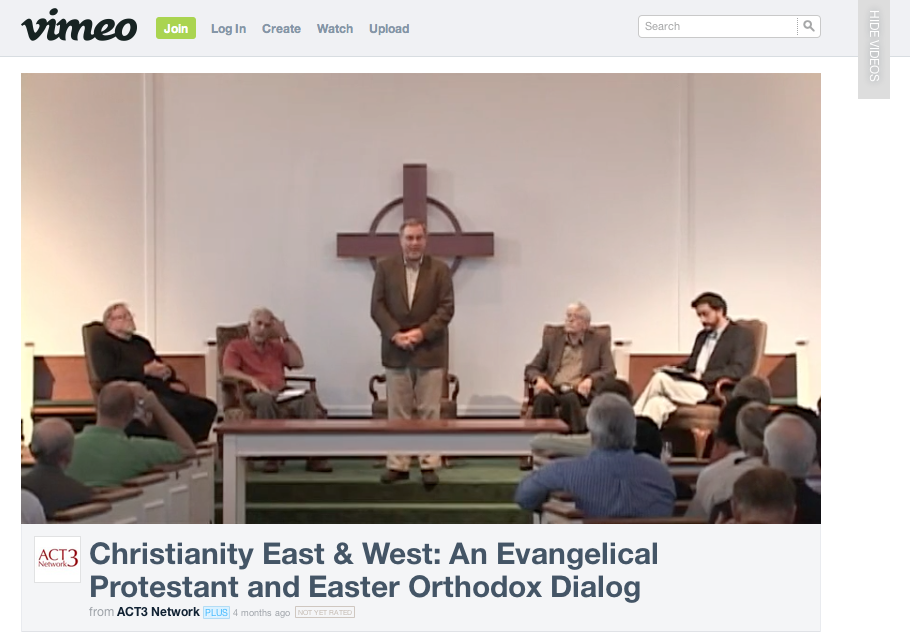
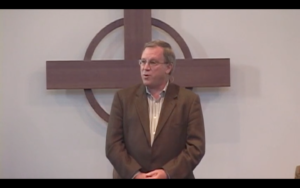
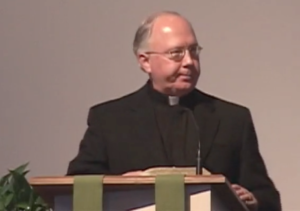
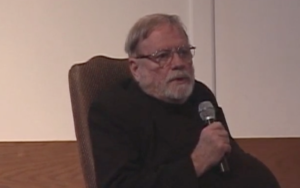
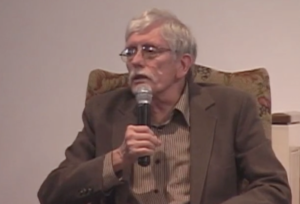
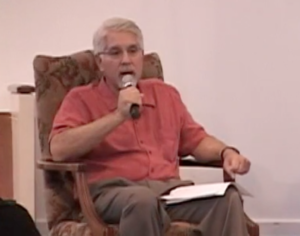
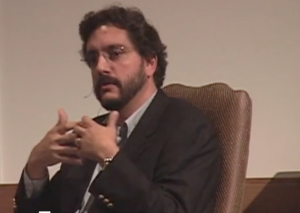
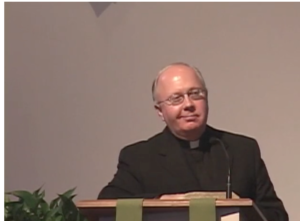
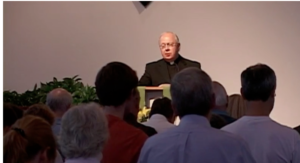




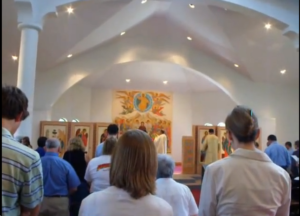

Recent Comments